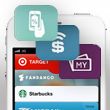By Amy Vale
Over the last several weeks, everyone has been talking
about Apple’s debut of the iPad Mini. It has a somewhat smaller screen size
(7.9 inches, to be exact); it’s priced lower than the older versions of the
iPad; it’s equipped with a new and improved 5-megapixel camera. But will this
new tablet be seen as an opportunity or challenge to app developers? Here are 3
reasons the iPad Mini will tip the monetization scale for developers (in a good
way).
Play nice with old
apps
The in-app experience on the iPad Mini will be the same
as on the older and bigger versions of the iPad. In fact, it’s capable of
running 275,000 iPad apps. That’s good news for app developers who may not have
the resources or budgets to redesign or rescale their existing iPad apps to fit
the lighter, thinner and smaller version. Plus, since the iPad Mini has the
same aspect ratio as the bigger iPads, apps designed for the iPad Mini’s
7.9-inch screen will translate well to the larger 10-inch screen of the iPad.
Up the ante for
tablet gaming
Some are calling the iPad Mini a gaming “game-changer”
for the simple fact that the device’s lighter, thinner and smaller specs allow
users to hold it comfortably in one hand. As a result, it’s been touted as an
alternative controller or console for iOS games.
Mintel has found
that sales in the mobile phone and tablet gaming market in the U.S. more than
doubled between 2005 and 2010—reaching $898 million—and sales are forecasted to
increase 82%, to $1.6 billion, by 2015. Smartphone sales in the U.S. increased
a massive 538%—from 11.3 million units to 72 million units—between 2006 and
2011. What’s more is that U.S. tablet sales are forecast to more than triple
between 2010 and 2015, from 10.3 million units to 44 million units. So what
does this mean for gaming developers looking to monetize with ads on the iPad? For
gaming developers looking to monetize effectively and consistently, the route
to monetization will be just as clear, if not better, via in-app ads and in-app
purchases.
Enhance user
experience
Tablets are often referred to as “lean back” devices. Its
users rely on the devices to read e-books/news, watch videos, play games, use
utility apps, listen to music and perform a host of other activities (aside
from making calls/talking). Understand what types of tablet users are likely to
use a specific app on the iPad Mini, where they’re using it, when they’re using
it and for what purpose. If your app has a strong design, easy-to-use interface
and isn’t cluttered with an excessive number of calls-to-action, you’ll be one
step closer to monetization.





